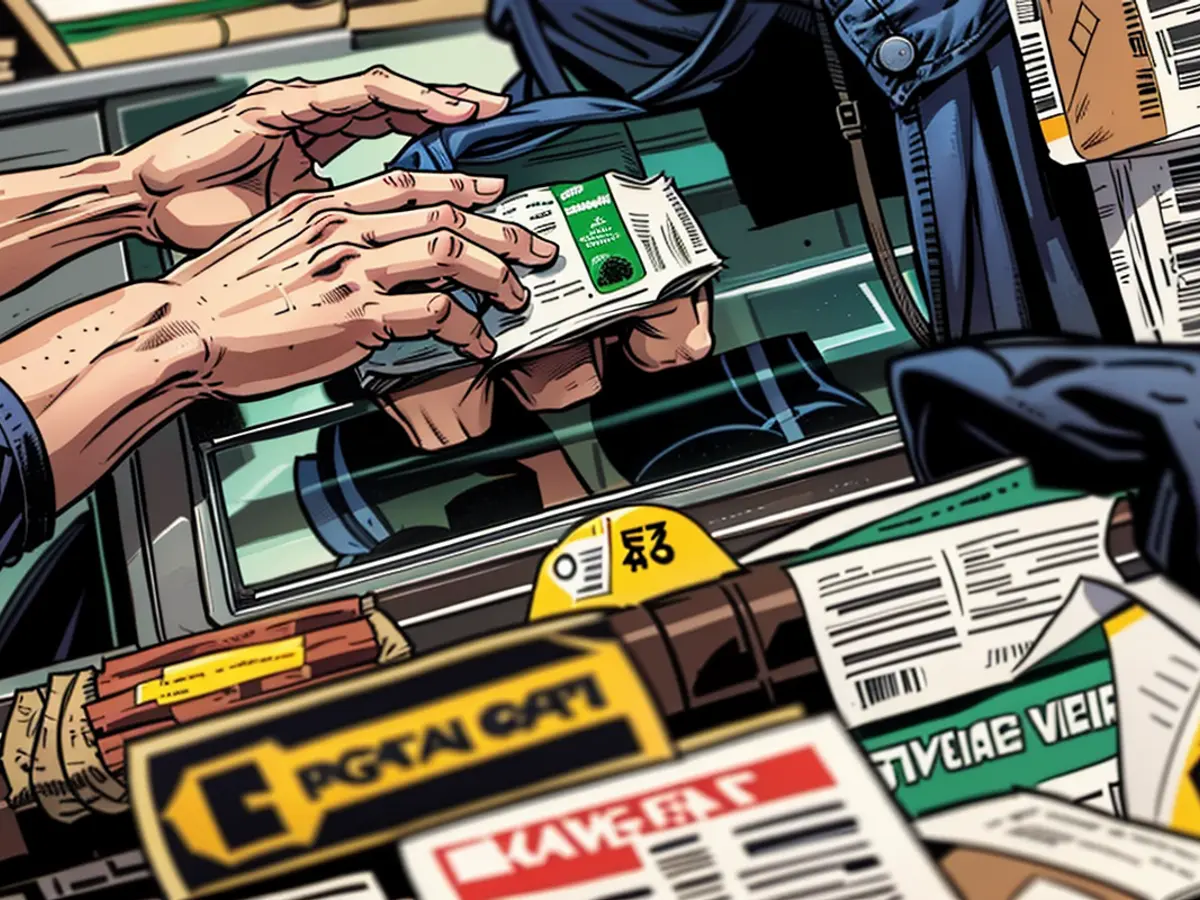Consumers - France launches mandatory labeling for deceptive packaging
In France, retailers of single-unit food products must label shrinked packaging with a notice on the shelf starting from Monday. This concerns products whose packaging size has been reduced while the price remains the same or is increased, according to the French Economy Ministry. This practice, although not banned, often faces criticism as consumers often find it hard to notice during shopping.
For a duration of two months following a change in packaging size, a notice on the shelf is now required in France, indicating how the quantity in the packaging and the price have changed. This regulation applies to food products and others, for both branded articles and own-brand products of supermarkets. The regulation on the labelling of so-called "shrinkflation" was introduced in France during the high inflation of the previous year, as many people complained about high food prices and felt deceived by reduced packaging sizes.
Consumer protection organizations in Germany are also calling for labelling of such products. "Consumers must be able to identify shrinkflated products at a glance when shopping. Products with altered compositions or lower fill levels at the same or higher price should be labelled with a warning notice for at least six months," said the head of the German Consumer Federation, Ramona Pop.
The Consumer Centre Hamburg has been maintaining a list of shrinkflated products for years. In the past year, more complaints about such products were recorded than ever before, with over 100 products. Some manufacturers reduce the content while keeping or increasing the price, while others replace high-quality ingredients with cheaper ones. Shrinkflated products are reportedly most common in pleasure foods such as chocolate, cookies, and chips. In most cases, branded articles are affected. "Many people don't notice when they reach for a shrinkflated product during their daily shopping," said the head of the Consumer Centre Hamburg, Michael Knobloch. "The inconvenience for people is enormous."
The Federal Ministry for Environment and Consumer Protection (BMUV) announced in a key points paper in June 2023 that it intended to ban shrinkflated packaging. The project is reportedly still in the inter-ministerial approval process. "Since many foods are marketed in the same packaging in several EU member states, it is especially sensible to have uniform European requirements," said Federal Environment and Consumer Protection Minister Steffi Lemke (Greens). "Unfortunately, we have not yet been able to reach an agreement with the other federal ministries on this matter."
- The Consumer Advice Center Hamburg has been closely monitoring inflation-related issues, such as shrinkflation, in consumer goods.
- Criticism of deceptive packaging practices, like shrinkflation, has led the BMWi in Berlin to consider implementing stricter labeling obligations for consumer goods.
- If the BMWi's plan to ban shrinkflated packaging in Germany is successful, it could potentially influence labeling regulations in other European countries, including Paris, France.
- According to consumer reports, shrinkflation is not exclusive to France; it's a concern for many consumers across Europe, including those in Germany.
- To combat confusion caused by shrinkflated packaging, some retailers are voluntarily using clear labels that indicate changes in product quantity or price.
- The European Commission is also looking into this issue and has discussed potential solutions, such as standardizing labeling requirements for consumer goods across all member states.
- If consistent labeling requirements are established throughout Europe, it may help consumers to easily identify shrinkflated products and make informed decisions about their purchases.








